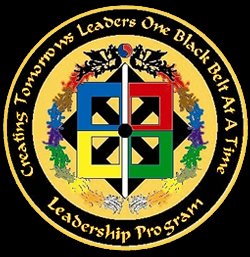
Introduction
Elizabeth Rice works for the NHS. She works in a team managing a project that involves nine primary care trusts in and around London. In 2000-1 she undertook training under Scope"s Leadership Recruitment programme (see note 1).
"Once I would have thought I could never carry out this position," says Elizabeth, who travels in her spare time and has also tried sky-diving.
"My confidence was at rock bottom when I started the scheme", she says. "Through undertaking various projects and training, even I could begin to see that I had potential and employability!"
Elizabeth Rice
Elizabeth lives in south-east London and she is 28 years old. She attended a mainstream school but left during her A levels course. "They weren"t geared up to deal with people with long-term health conditions".
After school Elizabeth did several clerical and admin jobs. Then she was off work and on incapacity benefit for a few years. She has an autoimmune impairment, which "is mostly invisible" it fluctuates but makes her prone to infections. Her medication prevents her driving when she is taking it and can make her muddle words or get very drowsy.
Elizabeth has now completed a post-graduate diploma in strategic human resource management, which she did at Thames Valley University in a flexible learning package, with the support of Scope's Leadership Recruitment.
Thinking about leadership
"I was always looking for something 'more'", says Elizabeth. "When I was on benefit the pathways back to work seemed aimed only at basic skills."
Finding the training
While on benefit Elizabeth wrote to around 40 organisations to find some work. "One of them told me about Scope"s Leadership Recruitment (LR) programme". This aims to combat discrimination faced by disabled people of graduate calibre, by developing them to increase their employability and career potential.
Elizabeth recalls that, "at that time they were only taking ten trainees per year – luckily they recognised my potential. They offered me the opportunity to develop interpersonal and practical skills, and to build my confidence."
The training
Elizabeth's training was two six-month placements, with a salary from Scope, plus continual mentoring and support. "I went to Corus, the steel company, then joined BUPA's graduate scheme. We also received individual and group training at the HSBC Management Centre outside London."
Elizabeth was also given advice on Access to Work (the government's scheme that gives employers financial help towards the extra costs of employing a disabled person, see note 2): "I had had no idea it even existed".
Benefits of the training
As for the benefits, Elizabeth stresses increased employability and personal confidence, some great contacts, and even some "friends for life". She talks about learning the social model approach to disability (as distinct from the "medical model") and her ability to teach others about this perspective. In her previous work, she had come up against the medical model. "You were seen as lazy if you needed adjustments."
Challenges
Scope's scheme provided an inclusive learning experience. Elizabeth reflects that "people that were willing to put everything into it, accept feedback and learn are those that gained the most."
The lessons of the experience
"I use the skills I learnt every day" says Elizabeth. She highlights skills in presentation, communication, time management, "setting myself personal work", and so on. The lessons have spilled over beyond Elizabeth"s working life. She believes she would never have had the confidence to try sky-diving and to travel, without some of the skills she gained from the scheme. The experience was life-changing for Elizabeth: "Without Leadership Recruitment I think my life-path could have been very different."
Elizabeth"s advice to others? "People need to find out what is out there – you have to create opportunities. Find yourself a good mentor, and be open to feedback and advice that is given to you".

No comments:
Post a Comment